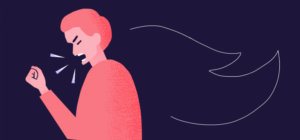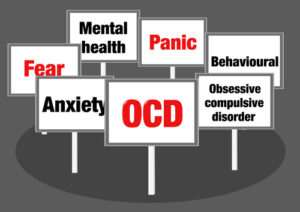OCD is an acronym for Obsessive Compulsive Disorder. It is a mental disorder characterized by intrusive and unwanted thoughts, urges, and images that cause significant distress or impairment in daily life. OCD can be difficult to understand, partly because it can be so secretive. However, some things we learn about OCD can help us better understand ourselves and the people around us. In this article, we are going to discuss OCD impulse control; what it is, what it means, and how we can use it to our advantage. By understanding OCD impulse control, we can better protect ourselves from potentially harmful impulses.
Contents
What is OCD?

Obsessive Compulsive Disorder (OCD) is a mental disorder characterized by intrusive, unwanted thoughts and images that typically cannot be dismissed or controlled. People with OCD often feel driven to perform certain rituals or behaviours in an effort to reduce the anxiety caused by the obsessions.
While not always dangerous, OCD can significantly impact an individual’s ability to lead a normal life. Sufferers may spend hours a day engaged in obsessive thoughts and activities, causing significant distress and interference with their daily routine.
There is no one-size-fits-all approach to treatment for OCD, as the disorder manifests itself in different ways for every individual. However, many treatments are available that can help ease the symptoms of OCD, including medication and psychotherapy.
Characteristics of OCD
 OCD is a mental disorder that affects the brain’s ability to control impulses. People with OCD find it difficult to stop or avoid certain thoughts, behaviours or objects. This can make everyday activities, like going to work for or school, extremely challenging.
OCD is a mental disorder that affects the brain’s ability to control impulses. People with OCD find it difficult to stop or avoid certain thoughts, behaviours or objects. This can make everyday activities, like going to work for or school, extremely challenging.
There are several characteristics of OCD that can help us understand what it is and why it matters. First, people with OCD often have persistent and intrusive thoughts (ideas) that won’t go away. These thoughts often involve personal safety, contamination or some other concern. Second, people with OCD may engage in repetitive behaviours (like checking locks multiple times a day) in an effort to reduce the likelihood of getting these unwanted thoughts and feelings. Finally, people with OCD often have a difficult time controlling their emotions – especially anxiety and fear. All of these factors create a very difficult life experience for those who suffer from OCD.
Impulse-Control Disorders
OCD is a mental disorder that causes people to have recurrent and persistent thoughts or urges that they cannot control. People with OCD may feel compelled to do things (such as checking the locks on their doors, repeatedly washing their hands, or counting objects) that are seemingly harmful or irrational. People with OCD can also experience intense anxiety and stress in response to thoughts or urges.
There is no one-size-fits-all approach to treating OCD, but many treatments involve counselling, medication, and behavioural therapies. Some people may also require hospitalization for treatment. If you are struggling with OCD, please seek help from your doctor or therapist.
Obsessive-Compulsive Disorder and Substance Abuse
 Obsessive-Compulsive Disorder (OCD) is a mental disorder characterized by persistent, intrusive thoughts or images that typically cause distress. People with OCD may become so fixated on these thoughts or images that they experience significant distress or problems functioning. In addition, people with OCD are often over-sensitive to environmental stimuli and engage in repetitive behaviours in an attempt to reduce this sensitivity.
Obsessive-Compulsive Disorder (OCD) is a mental disorder characterized by persistent, intrusive thoughts or images that typically cause distress. People with OCD may become so fixated on these thoughts or images that they experience significant distress or problems functioning. In addition, people with OCD are often over-sensitive to environmental stimuli and engage in repetitive behaviours in an attempt to reduce this sensitivity.
Substance abuse can be a common comorbidity in people who suffer from OCD. This is because substances can help reduce the distress and anxiety associated with the disorder. Additionally, substances can also increase the person’s impulsivity and modulate their moods. People who abuse substances may also find it easier to engage in obsessional behaviour due to the intoxication caused by these substances.
There are many effective treatments available for OCD and substance abuse. Treatment for OCD generally involves medication and behavioural therapy. Many treatment programs also include counselling services that can help individuals learn how to manage their symptoms effectively. Substance abuse treatment typically focuses on helping individuals address underlying issues such as addiction, mental health issues, and relationship conflicts.
Relationship of OCD to Other Mental Disorders
 Obsessive-compulsive disorder, or OCD, is a mental disorder that is characterized by recurrent intrusive thoughts (obsessions) and repeated behaviours (compulsions) that are judged to be ineffective or harmful. OCD can significantly disrupt an individual’s life, though it is relatively rare. The main problem with OCD is that obsessions and compulsions often have no objective basis. People with OCD may also experience distress due to the interference these thoughts and behaviours cause in their lives.
Obsessive-compulsive disorder, or OCD, is a mental disorder that is characterized by recurrent intrusive thoughts (obsessions) and repeated behaviours (compulsions) that are judged to be ineffective or harmful. OCD can significantly disrupt an individual’s life, though it is relatively rare. The main problem with OCD is that obsessions and compulsions often have no objective basis. People with OCD may also experience distress due to the interference these thoughts and behaviours cause in their lives.
There are many mental disorders that commonly co-occur with OCD. These include major depressive disorder, anxiety disorders such as panic disorder and social phobia, obsessive-compulsive personality disorder, and Tourette syndrome. It is important to understand that each person experiences OCPD differently and what might work for one person may not work for another. That said, there are some general tips that can help improve the relationship between OCD and these other mental disorders:
1.) Seek professional help if symptoms of OCD become severe or if they interfere with your quality of life. A therapist can provide you with guidance on how to manage your symptoms and improve your overall well-being.
2.) Be open about your struggles with OCD to your friends, family members, and partner. Sharing your feelings will help them understand you better and make sure they’re supportive during times when you’re feeling particularly stressed out by your symptoms.
3.) Make time
Treatment for OCD
 There is currently no cure for Obsessive Compulsive Disorder, but there are various treatments that can help people live more comfortably with the disorder. Some of these treatments involve medication, therapy, or a combination of both.
There is currently no cure for Obsessive Compulsive Disorder, but there are various treatments that can help people live more comfortably with the disorder. Some of these treatments involve medication, therapy, or a combination of both.
Medication
Medications used to treat OCD include antipsychotics, SSRIs (selective serotonin reuptake inhibitors), and beta blockers. These medications work by changing how the brain processes information. They can help reduce the frequency and severity of obsessions and compulsions. However, they may also have side effects, including weight gain, decreased libido, and diabetes (Find Online Diabetes Experts). It is essential that people who are prescribed these medications speak with their doctor about any potential risks.
Therapy
Therapy can be helpful in treating OCD by teaching people how to manage their symptoms. Therapists may recommend cognitive-behavioral therapy (CBT) or dialectical behavior therapy (DBT). CBT focuses on changing how people think about their thoughts and behaviors related to OCD. DBT emphasizes the use of tools such as mindfulness exercises and self- compassion to help people regulate emotions and cope better with stressors. Both therapies can take several weeks or months to achieve results.
Combination Therapy
Some people find relief from OCD through combination therapy, which involves using two or more types of treatment simultaneously. This approach is often most successful when it is tailored specifically to an individual’s needs. To maximize benefits from combination therapy, patients should attend
Conclusion
Obsessive-compulsive disorder (OCD) is a mental health condition that causes people to have recurrent, intrusive thoughts or images that cause distress. For many people with OCD, the obsessions are directed toward specific behaviors or objects, and the compulsions are aimed at reducing the anxiety caused by the obsessions. We want to know more about OCD impulse control so that we can better understand and help those affected by it. In this article, we discuss some of the common symptoms of OCD and explore how impulse control might be involved in their development. If you or someone you know is struggling with OCD, please feel free to reach out for help.
For more information and guidance, please contact OCDMantra. OCD is a mental health disorder characterized by obsessions and compulsions. If you have any queries regarding OCD treatment, OCD Counseling, ERP therapy experienced therapists at OCDMantra can help: Book a trial OCD therapy session


